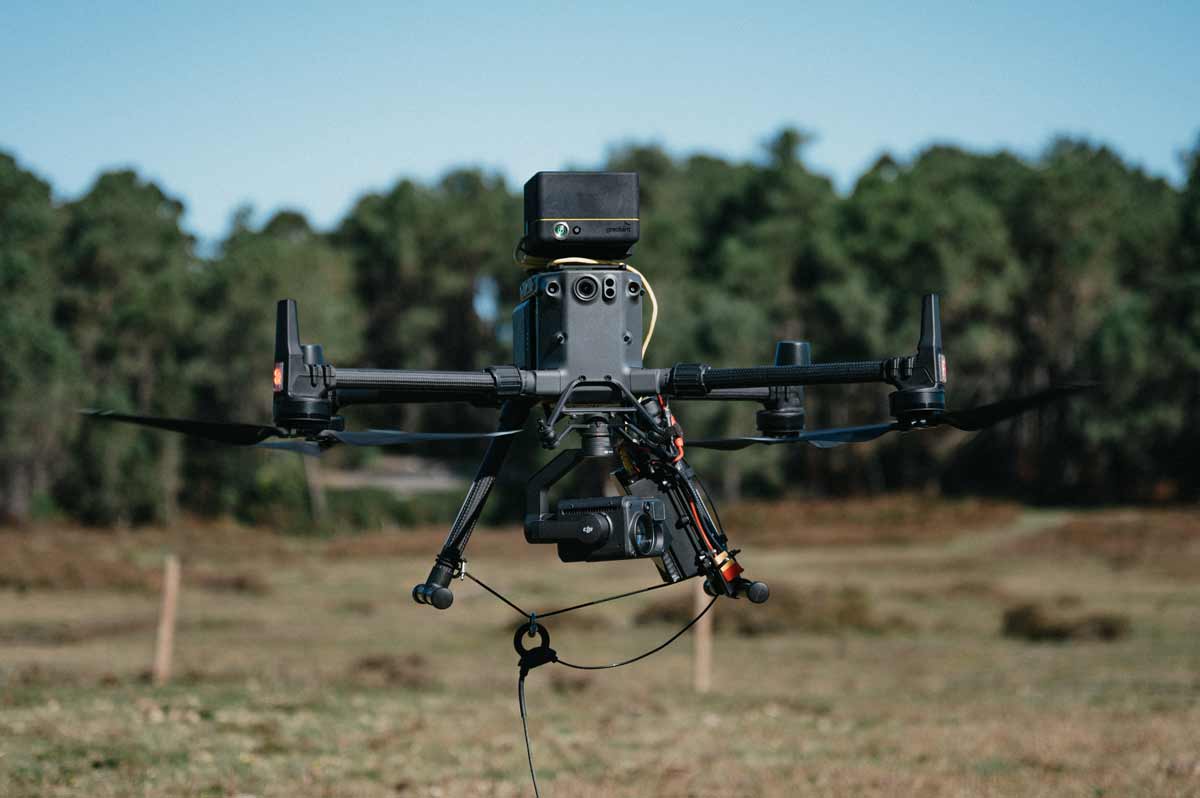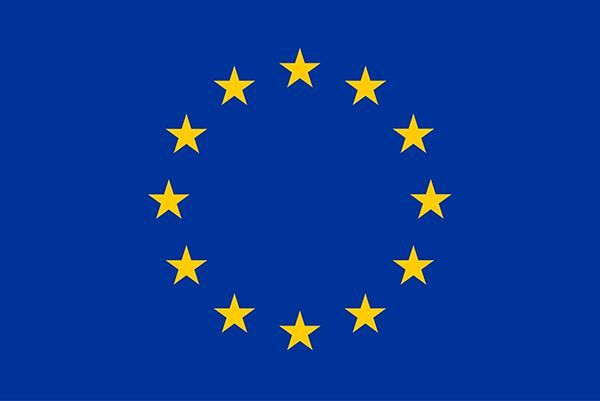Agriculture, livestock and forestry, more sustainable with the use of the Captive UAV, intelligent video analysis and the digital twin
The SPADE project started last September 2022 and has a funding of 6 million euros from the European Union through the Horizon Europe programme
Gradiant and a consortium of 22 partners are working on the SPADE project with the aim of developing a smart ecosystem that allows the primary sector to be more sustainable. To achieve this, Gradiant will develop a system that combines the use of integrated technologies in UAVs, the digital twin and intelligent video processing. The project, which started last September, is funded with 6 million euros from the European Union through the Horizon Europe programme and will be developed over four years. The project will implement three pilots related to different activities in the primary sector: agriculture, livestock and forestry.
SPADE (multi-purpoSe Physical-cyber Agri-forest Drones Ecosystem for governance and environmental observation) will disseminate technological innovations and extend the possibilities of drones in the primary sector. For example, developing drones and sensors that enable the use of drone swarms, captive UAVs or large drones. It also envisages the advancement of an open-source ecosystem that facilitates the collection, processing and distribution of data through the use of a digital twin. The knowledge and dissemination of these innovations in the sector will be essential so that they can be used in the long term in agriculture and forestry.
Innovation in the Galician countryside
It is not the first time that Gradiant works in initiatives related to agriculture and livestock. Thanks to the development of intelligent video and image analysis techniques, Gradiant has developed and validated technology for the modernisation of the agricultural industry. By carrying out automated field inspections using drones and our video analytics techniques. In this way, we increased their efficiency and reduced the complexity and costs of carrying them out.
On the other hand, thanks to different Data Analytics models developed by Gradiant, we have also worked on different tools focused on Smart Farming. The aim is that the combination of IoT and effective data management and analysis will lead to more sustainable and efficient livestock farms, with more optimised resources and guaranteed traceability of animal welfare. These are just some of the examples where Gradiant has proposed different solutions and technologies that can make agriculture and forestry sustainable in the European environment.
Socially, ecologically and economically sustainable European agriculture
Agriculture occupies a unique position at the heart of society, the environment and the economy of the European Union. That is why the common agricultural policy (CAP) has as a priority objective the economic, social and environmental sustainability of agriculture and forestry. To this end, research and technological innovation have become fundamental tools with a long-term strategic approach. The European Union is working on an agricultural policy focused on creating value from the land through sustainable primary production, as well as on improving rural innovation. Technology can play a key role in combating issues such as climate change, environmental degradation and biodiversity loss.
Depopulation and generational replacement are also some of the challenges facing the primary sector in Europe. In addition, for our expert in Advanced Communications, Lucas Val Terrón, one of the challenges of the sector is the “development of specific and robust technologies that allow to efficiently and automatically solve ‘heavy’ tasks within the primary sector”. Moreover, this transformation will not depend only on the private sector. For Lucas Val Terrón “it will be necessary, for example, that in the legislative field specific rules are developed for the use of drones in the primary sector”.
Three pilot projects: agriculture, forestry and livestock farming
SPADE will host three pilot projects, one for each of the most important areas in the primary sector: agriculture, forestry and livestock. Each of them will combine different technologies in which we are experts: video analysis through the use of Artificial Intelligence and the captive UAV system solution, which implements surveillance and observation capabilities to drones. To these developments we add our leadership in digital twin solutions.
The combination of these three technologies will be tested in three pilot experiences with the objective of making it more sustainable:
In agriculture, the pilot will be developed in Spain, with the objective of identifying and preventing diseases of different types of crops. The pilot related to forestry will be implemented in Norway and will be aimed at inventorying the different types of trees in the forest and supporting forestry machinery. The pilot to be developed in Greece is aimed at improving sheep farming on the island of Lesvos through grazing and animal health monitoring.
The SPADE consortium
The SPADE project started in September 2022 and will run for four years. It is coordinated by Ethniko Kentro Erevnas Kai Technologikis Anaptyxis (Greece). The entities participating in this project are Hafenstrom As (Norway), Nydor Systimata Technologies Anonymos Etairia (Greece), Syddansk Universitet (Denmark), Fraunhofer Gesellschaft Zur Forderung Der Angewandten Forschung Ev (Germany), Gradiant (Spain), Sociedade Portuguesa De Inovaçao Consultadoria Empresarial E Fomento Da Inovaçao Sa (Portugal), Oulun Yliopisto (Finland), Nibio – Norsk Institutt For Biookonomi (Norway), Norges Teknisk-Naturvitenskapelige Universitet Ntnu (Norway), Aristotelio Panepistimio Thessalonikis (Greece), Trialog (France), Eclipse Foundation Europe Gmbh (Germany), Splorotech Slu (Spain), Bavenir Sro (Slovakia) Farmb Psifiaki Georgia Anonimi Etairia (Greece), Aarhus Universitet (Denmark), Anysolution Sl (Spain), Mallorcan New Potatoes Sat (Spain) and Sociedad Cooperativa Agricola San Bartolome (Spain). This alliance also counts as a partner with the University Of Lincoln (United Kingdom).
This project has received funding from the European Union’s Horizon Europe research and innovation programme under Grant Agreement no. 101060778.




